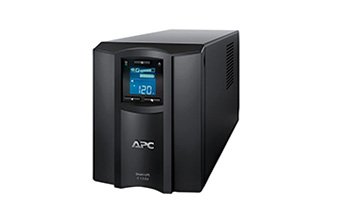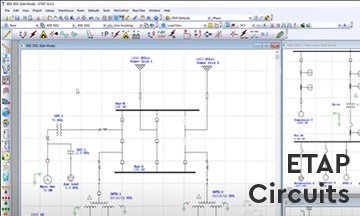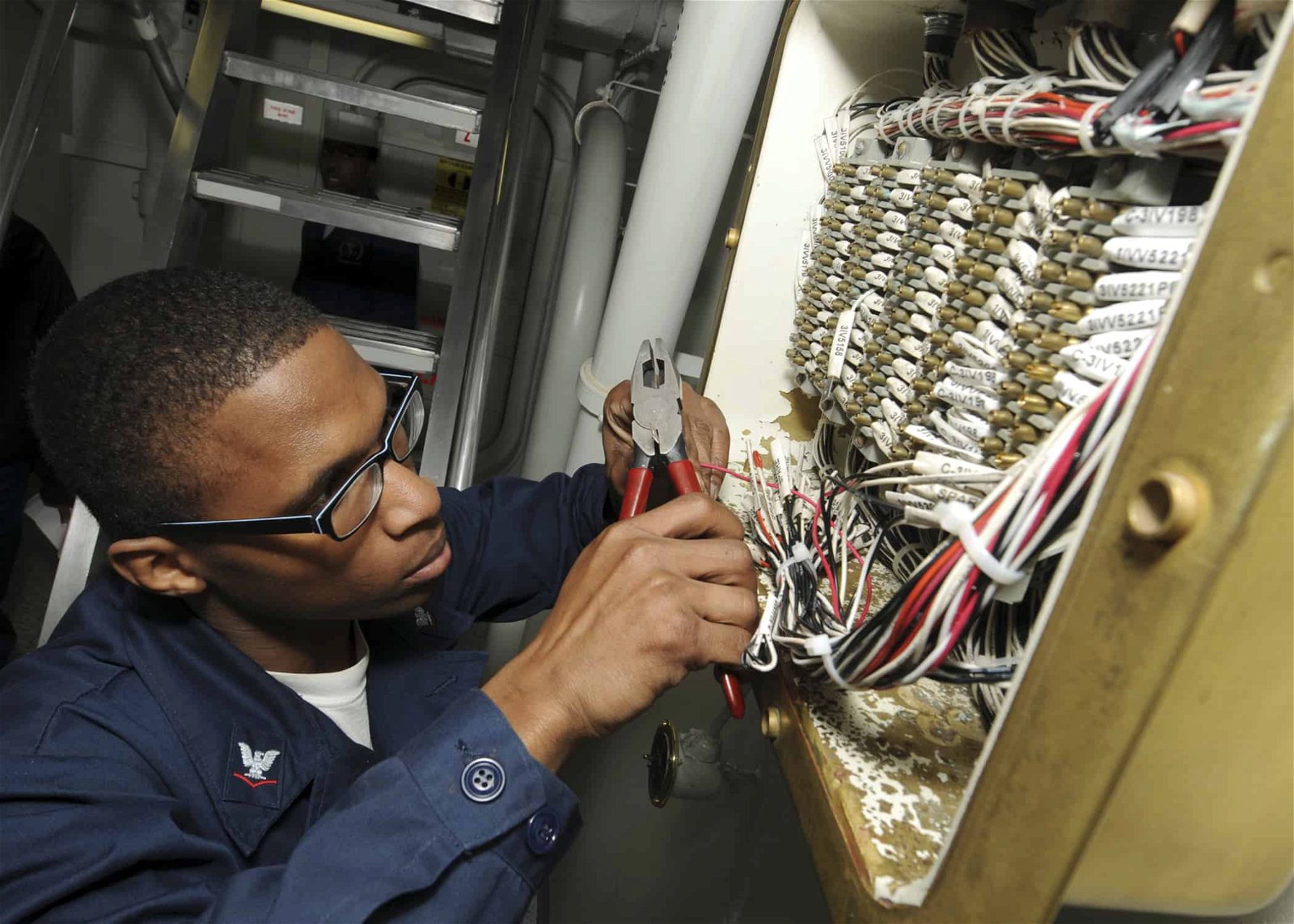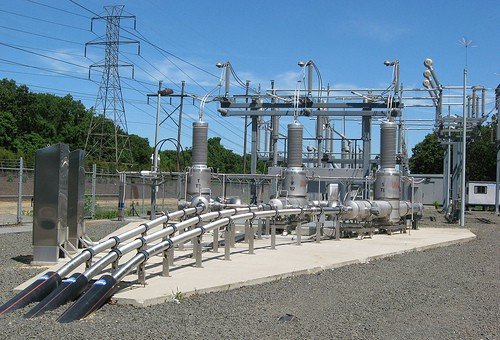Uninterruptible Power Supply Systems
| Date | Venue | Duration | Fees | |
|---|---|---|---|---|
| 06 May - 10 May, 2024 | Dubai | 5 Days | $4750 | Register |
| 20 May - 24 May, 2024 | Houston | 5 Days | $5695 | Register |
| 10 Jun - 14 Jun, 2024 | Dubai | 5 Days | $4750 | Register |
| 08 Jul - 12 Jul, 2024 | Dubai | 5 Days | $4750 | Register |
| 12 Aug - 16 Aug, 2024 | Dubai | 5 Days | $4750 | Register |
| 02 Sep - 06 Sep, 2024 | Dubai | 5 Days | $4750 | Register |
| 07 Oct - 11 Oct, 2024 | Dubai | 5 Days | $4750 | Register |
| 25 Nov - 29 Nov, 2024 | Dubai | 5 Days | $4750 | Register |
| 16 Dec - 20 Dec, 2024 | Dubai | 5 Days | $4750 | Register |
Course Overview
This course shall explore different and unique types of dynamic and static Uninterruptible Power Supply (UPS). Electrical power outages are pernicious to electrical devices as well as power networks and systems. Therefore, UPSs are needed to ensure the electrical power supplied is stable, reliable, and secure. In addition, UPS improves power quality for semiconductor utilising devices.
What is UPS and its types?
Some types of UPSs are already making waves in the market because of their security and stability, such as the dynamic uninterruptible power supply or the infamous diesel rotary uninterruptible power supply (DRUPS) systems. They provide a reliable and clean alternating current which is much needed by consumers everywhere, such as in powering important devices or powering data centres. The two superior and infamous UPSs do not use batteries and are therefore more reliable and greener.
UPSs are vital in power supply stabilisation and a must-have device for this century. The main advantage of UPS is that they have components such as batteries, inverters, rectifiers, and in the recent past, new technologies that use power electronics components.
How does uninterruptible power supply work?
UPS is expected to provide the system with maximum possible reliability and improved quality while maintaining the costs low. More often, achieving such requirements becomes a major design and maintenance challenge and dilemma between improvements and the costs of improving UPSs. A compromise between the power quality and reliability is made from one side and the investment from another end. Due to these reasons, power loads are classified according to the effects that will arise if their power supply is interrupted.
Critical, non-essential, and essential is the classification used to categorise loads. Non-essential loads have a minor effect when their power is interrupted. There is a significant effect on essential loads, especially if the interruption takes a duration above a set threshold value. Critical loads should never be interrupted as the impact is huge with hazards and costly results.
This Zoe course shall handle the following:
• The modern technologies used in UPS
• Importance of having an efficient UPS
• Battery monitoring and electrical power quality
• Types of batteries, their maintainability, and types
• Operations and construction of UPS
Course Objectives
This course intends to teach participants the main difference between static and dynamic UPS and battery maintainability. Participants are expected to have understood the following concepts after learning:
• To appreciate the importance of battery monitoring in UPS
• Why power quality is important in UPS
• Analyse characteristics of UPS batteries
• Understand and thoroughly master the operations of different static UPS
• Deeply understand UPS topologies
• Comprehensively understand the importance of continuous power supply for critical and essential loads
Training Methodology
Training for this course shall be administered by well-trained professionals who are reputable in their various and respective fields. There will be theoretical sessions and practicals both in class and online. All the participants shall be assigned tasks and assignments in groups and as individuals. However, everyone is highly encouraged to interact with the tutors and other participants. Role-play is part of this course teaching methodology whenever it can be used.
Questions are also encouraged to help learners understand the concepts thoroughly.
Organisational Benefits
After undergoing this course, organisations stand to benefit in the following ways:
• Reduced and well-managed operational costs because of power quality improvement
• Seamless operations with low or non-interruption of power supply
• Safety measures, regulation, and legislation adherence when maintaining UPS systems
• Organisational development and increased credibility because of using uninterruptible power
• Increased productivity will be achieved through minimisation of design, testing, and project time acceptance
• Regular training of other employees on matters related to power quality improvement and battery types
• Detailed knowledge of UPS
Personal Benefits
• A complete and comprehensive grasp of the basis for the utilisation of UPS
• Enhanced foresight to fight power interruption
• A sense of pride will develop from contributing greatly to developing their organisations
• Great potential to take up more high-level responsibilities
• Understanding and appreciation of power quality issues
• Grasp the idea of critical load application
• Be ready and exposed to review electrical installations
• Better understanding of maintenance requirements of a UPS
Who Should Attend?
• UPS supply and control Engineers and technicians in different scenarios such as industries, homes, manufacturing, etc.
• Power system engineering technicians who are involved with day-to-day activities
• Operations and maintenance technicians and engineers who have the responsibilities to maintain electrical equipment
• Project engineers who need to understand power quality issues and how to ensure uninterrupted power supply
• Engineers professions who deal with electrical power machines
Course Outline
Module 1: UPS technologies
• Power quality issues and main failure avoidance
• UPS supply systems using both single and double sources
• Automated Transfer Switch (ATS) advantages and functionalities
• Batteries migration and UPS systems
• UPS protection systems
• Set characteristics for standby generators
• UPS primary types and supply systems
Module 2: Dynamic UPS advantages and architecture
• Kinolt system analysis (former Euro Diesel)
• Kinetic energy conservation and storage in UPS systems
• Batteries and flywheels that make up dynamic UPS systems
• Dynamic system and reliability solutions
• Dynamic UPS system operation
• Dynamic UPS system architecture
• Features of Dynamic uninterruptible supply system
• Unblocking Diesel rotary UPS systems
Module 3: static UPS architecture and technologies
• Advantages of offline UPS
• Delta conversion uninterruptible power supply
• The power factor in UPS
• UPS ratings
• Redundancy in UPS
• Double conversion in an uninterruptible power supply
• Uninterruptible power supply components and functionality
• Parallel systems to build redundancy
• Transformer-based uninterruptible power supply
• Transformerless uninterruptible power supply
• Uninterruptible power supply operations
Module 4: UPS configurations
• Evaluating power supply maintainability and reliability
• Defining different load classes and evaluation of the effects of poor power supply quality and reliability
• Maintainability requirements and troubleshooting procedures for UPS
• Installation and operations of uninterruptible power supply systems
• Practical configuration of uninterruptible power supply systems
• Uninterruptible power supply characteristics and operations
• Effects of different sources and their power quality disturbances
• Uninterruptible power supply system selection criteria to ensure a reliable supply of power to various load types
• Distribution system analysis and designs
Module 5: Battery monitoring using automated systems, battery types, and chargers
• Importance and advantages of battery monitoring
• Battery monitoring conditions for UPS systems
• Types of chargers for uninterruptible power supply systems
• Nickel-cadmium type of batteries and their maintenance characteristics
• Lead-acid AGM uninterruptible power supply batteries and their characteristics
Module 6: Rotary and Dynamic UPS systems
• Synchronous motors and machines operations
• DRUPS and their configurations
• Principles and features of HiTec DRUPS
• Advantages of Rotary uninterruptible power supply
Module 7: UPS utilisation
• Induction coupling features
• HiTec Diesel uninterruptible power supply systems
• Configuration of HiTec diesel
• Freewheel clutch
• The flywheel
Module 8: UPS for industries
• Types of UPS that can be used in industries
• Industrial UPS configurations
• Industrial UPS maintenance
• Industrial UPS testing, recommissioning, and operations procedures
• Globally acceptable standards for housekeeping in UPS maintenance
• Safety issues and principles of practice when maintaining UPS systems











